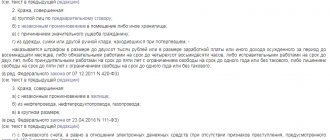Article of the Criminal Code of the Russian Federation
The Criminal Code of the Russian Federation classifies theft as a criminal offense . In other words, this is a crime of varying severity - it can be either a minor sin or a rather serious charge. Categories of thefts are distinguished from the total mass of reports by how much, what and how were stolen. However, the basic definition remains general. The theft is carried out secretly and is the deliberate theft of the property of another citizen of the Russian Federation. If a citizen discovers a theft in the process of committing it, its name changes to outright robbery.
The differentiation of thefts by severity is specified in Article 158 of the Criminal Code of the Russian Federation . Let's look at the components of this legislative document in more detail.
Part one gives a comprehensive description of what theft is - it lists all the common (or standard) cases when an illegal act actually constitutes it.
The second part examines the concept of collective theft (committed by a team of people), and also examines the actions of pickpockets and theft from warehouses or offices (non-residential premises).
The third part separates from general thefts those that:
- Resulted in a major loss of the victim's property;
- Are made from apartments or residential buildings;
- They are related to the theft of the natural resources of the planet or country.
The fourth part describes the deliberate commission of thefts by criminal groups (organized gangs), as well as theft on an especially large scale.
Also, the article describes the penalties that apply to persons who have committed one or more of the above crimes. In addition to the type of theft and items, the punishment will depend on the method of committing the crime, aggravating or mitigating circumstances, and the value of what was stolen.
In this case, you will have to defend yourself using the same methods. It doesn’t matter whether you were accused of petty theft or a fairly serious crime.
How can you prove your innocence?
According to the law, a person who is suspected of committing any crime, including theft, is not required to do anything. In other words, he doesn't have to prove his innocence. But in practice, a lot depends on the actions of the accused. In particular, it is important to provide information that can refute the victim’s claims.
For example, a suspect may have an alibi for the time the theft occurred. Of course, witnesses will be needed to confirm his words. But the alibi must be real, as problems may arise for providing false information. For example, this applies to witnesses who have provided deliberately false testimony. They may be held accountable under Art. 307 of the Criminal Code of the Russian Federation.
What to do if accused of a crime?
Defend yourself, definitely. To do this, you will have to prove to the court that you are innocent - more precisely, they cannot even bring charges against you without sufficiently strong evidence of your guilt. Remember this. The first and main method of your defense will be based on the presumption of your innocence . This means that your guilt must be proven in order for the fact of the crime to “fall” on your shoulders. Legal proceedings cannot begin unless the victim provides at least some evidence to government law enforcement agencies.
What this really means is that if you are innocent, you don't have to worry about anything. After all, the prosecutor simply won’t find evidence. However, inaction can lead to falsification of evidence against you , so the first thing to do is call the police yourself. Employees will need to explain that you are being accused of a theft that you did not commit. And also that you are ready to cooperate with the investigation in any way.
Next, you still have to confirm your words. It is best if you have an alibi or witnesses to your presence in another place - human testimony takes precedence over any technical evidence. However, if you cannot provide witnesses, no problem. Video and audio recordings, your photographs, and any confirmed fact that you were in another place or do not have a motive to commit a crime will do.
After this, if you are nevertheless charged and summoned to court, contact a lawyer. It is important to choose a specialist who specializes in thefts - this way you will ensure that the person knows what he is doing (he has eaten more than one dog at this). A lawyer will quite easily find evidence of your innocence if you really did not commit any crime.
If you were acquitted due to lack of evidence (and you really did not steal anything from your accuser), you can file a counterclaim that you were slandered. Accordingly, if the theft victim deliberately decided to defame you (and you have evidence of this), she herself will face criminal penalties for libel.
Liability for libel and knowingly false accusations under the law of the Russian Federation
The Criminal Procedure Code of the Russian Federation classifies libel as an offense of private prosecution. Only the slandered person can initiate prosecution of the slanderer. To protect legitimate interests, he has the right to apply:
- to court with a demand to bring the offender to criminal liability or with a claim for moral damages and a demand to refute false data under Articles 151 and 152 of the Civil Code of the Russian Federation, respectively;
- to the police with a statement about an offense committed against oneself;
- to the prosecutor's office with a complaint about actions that damaged the citizen's reputation.
Note!
Prosecution even under light charges, which include libel, can worsen a citizen’s subsequent opportunities for employment, participation in politics, and other areas. Upon learning that an application has been filed with the court or law enforcement agencies, the defendant should engage a qualified attorney.
3 ways to avoid criminal liability for libel
Libel cases are difficult for both parties, as it is necessary to prove or disprove the presence of intent in disseminating false information. From a defense point of view, the strategy can be built in three directions:
- Prove that the information disseminated was true or that the defendant had sufficiently compelling reasons to believe it was so.
- Establish the source from which the defendant received false information, which was relayed by him - in this case, the defendant can also refer to his belief in the reliability of the information. Call recordings, correspondence and other data should be provided to law enforcement agencies and the court.
- If the slander was formed on the basis of statements taken out of context or edited material in the media, you should attract witnesses to the conversation, find the original recording of the broadcast, speech or meeting, which would confirm the absence of intentions to discredit the plaintiff in the words of the defendant.
Note!
Pre-trial reconciliation with the injured party would be optimal. According to Article 20 of the Code of Criminal Procedure of the Russian Federation, this is possible until the court retires to a special room to make a decision on the case.
Punishment
Different parts of Article 158 of the Criminal Code establish specific types, terms and amount of punishment when a citizen commits proven theft.
So, general legal penalties mean that you will have to:
- Pay money (fine) - no more than 80,000 rubles;
- Go to compulsory work - no more than 360 hours;
- Send to correctional labor for a period of no more than a year;
- Accept restrictions on your freedom for a period of no more than two years;
- Go through arrest - for a period of 4 months;
- Lose your freedom for a period of no more than two years.
Theft from pockets of clothing, non-residential premises or group theft (not organized crime) may be punished as follows:
- Two hundred thousand rubles of fines - no more, but less;
- 480 or less mandatory work;
- The assignment of correctional labor is for a period of no more than two years;
- Assignment of forced labor for a period of no more than five years;
- Imprisonment – up to 5 years in prison.
Major thefts, thefts from apartments and houses, as well as theft of the country's natural resources are punished as follows:
- Five hundred thousand rubles in fines – no more, but less;
- Imprisonment - no more than 6 years (in this case, a fine of 80,000 rubles may also be charged for subsequent violations);
- Forced labor – no more than 5 years.
Particularly large-scale thefts, as well as the activities of gangster groups committing theft, imply the following penalties:
- No more than ten years imprisonment;
- Fine up to a million rubles.
Criminal liability for libel and false accusation
Insults relate to administrative legislation. According to Article 5.61 of the Code of Administrative Offenses of the Russian Federation, for them a fine of up to 3 thousand rubles can be imposed on the culprit, and if the defendant is an official, then up to 30 thousand rubles. If the abuse was voiced through a public speech or through a media broadcast, the fines will increase to 5 and 50 thousand rubles, respectively.
Libel and false accusations fall under criminal law:
- Article 218.1 provides for liability for libel, and the severity of the sanctions depends on the method of dissemination of false information and the mass coverage.
- Section 306 sets out the penalty for knowingly attempting to mislead the police as to whether a person was involved in the killing or whether an offense had been committed. Moreover, if the applicant had no intent, he assumed that the crime could have been committed with the participation of the specified person, then liability does not arise.
Qualification of the crime
The main criteria for recognizing disseminated information as slander or false denunciation are:
- Intentionality - the source of information dissemination was knowingly aware of its unreliability. If the distributor could not have known in advance about the falsity of the message, this will be considered a delusion.
- Disclosed information negatively affects the reputation of a person - if true or false information was disseminated, which does not in any way affect the reputation in the eyes of others, this cannot be considered slander.
- Disclosure to third parties during a conversation, during official communications, in public speech or through mass media.
The essence of the disseminated data is also important for qualifying the offense. For example, when it comes to involvement in crimes of a sexual nature or the health status of the slandered person. The position of the slanderer relative to the victim is also taken into account. For example, if the defendant used his position to denigrate the reputation of a colleague.
What to do if you are guilty of theft
Unfortunately, in this case you face one of the above options. To mitigate the situation or even agree to resolve the issue “peacefully”, it is necessary to confess to the crime, as well as return the stolen property . It would also be useful to pay the injured party compensation for material and moral damage. This process is called “conciliation” and will involve you fully resolving any disputes with the applicant. Criminal liability in such cases may not apply if the applicant abandons his claim.
The sentence is also mitigated by confession and cooperation with the investigation. You will have to fully admit what you have done, agree to compensation, and then the criminal punishment may become many times milder than originally intended by law.
Slander and false accusation
The law allows each of the parties to the dispute to protect their honor and reputation from:
- Insults – open statement in a personal conversation or in the presence of outsiders of impartial information about a citizen using obscene language.
- Slander is the communication to third parties of deliberately false information that denigrates a person’s reputation in the eyes of the listener.
- False accusations – providing law enforcement agencies with false information about a citizen’s involvement in a crime.








